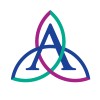Effect of Music Therapy on Cognitive Recovery
Epilepsy

About this trial
This is an interventional supportive care trial for Epilepsy focused on measuring Epilepsy, seizure disorder
Eligibility Criteria
Inclusion Criteria:
- Between 6-16 years of age
- Will undergo either a brain resection or lobectomy
Exclusion Criteria:
- Pre-surgical Full Scale IQ below 70
- Primary language is not English
- Hearing or vision impairments
- Parental consent cannot be obtained
Sites / Locations
- Dell Children's Medical Center of Central Texas
Arms of the Study
Arm 1
Arm 2
Experimental
Active Comparator
Music Therapy Arm
Unstructured Play Arm
Music therapy evaluation prior to surgery (Baseline 1). These evaluations will also be given within 3 days of epilepsy surgery (Baseline 2), 8 weeks after surgery (Baseline 3), and 9-12 months after surgery (Baseline 4.) Pre-study and post-study scores from the neuropsychological assessments will be compared to determine if music therapy has a significant effect on the child's cognitive recovery. Will consist of meeting with the music therapists, Certified Child Life Specialists (CCLS), or Child Life Assistants (CLA) for music therapy (treatment group) for about 45 minutes, twice per week, for Weeks 1-8. CThe Music Therapy group will partake in interventions such as singing and playing musical instruments.
Child life programs provide children with opportunities to engage in normal play and recreational activities that promote growth, development and feelings of success and fulfillment.All brain surgery candidates receive a neuropsychological assessment before and after surgery (9-12 months after surgery). This is the standard of care for all brain surgery patients. The results of this assessment and will be used in this research study. In addition, patients who agree to participate in the study will receive cognitive screening and a music therapy evaluation prior to surgery (Baseline 1). These evaluations will also be given within 3 days of epilepsy surgery (Baseline 2), 8 weeks after surgery (Baseline 3), and 9-12 months after surgery (Baseline 4.)
Outcomes
Primary Outcome Measures
Secondary Outcome Measures
Full Information
1. Study Identification
2. Study Status
3. Sponsor/Collaborators
4. Oversight
5. Study Description
6. Conditions and Keywords
7. Study Design
8. Arms, Groups, and Interventions
10. Eligibility
12. IPD Sharing Statement
Learn more about this trial
